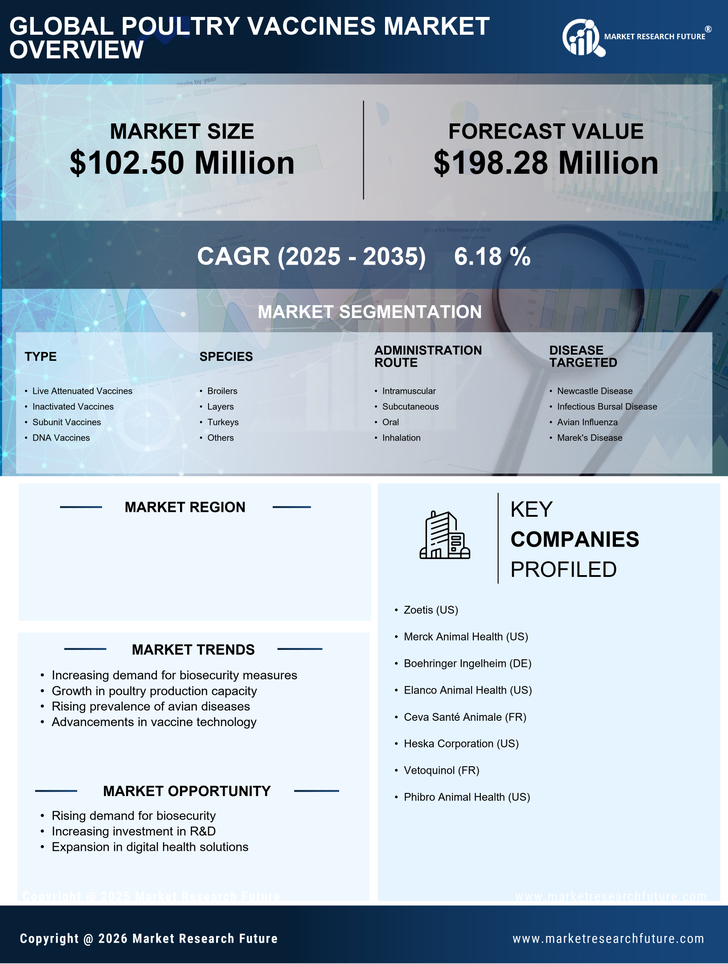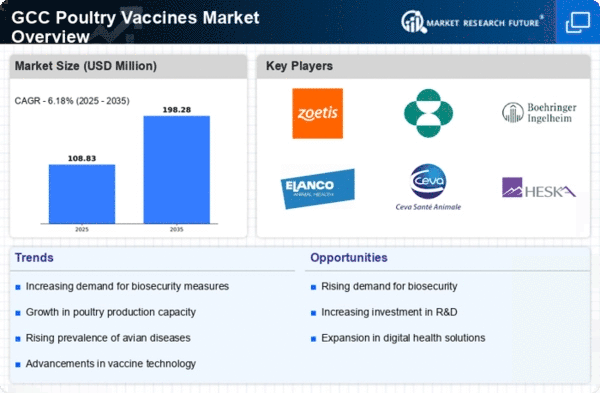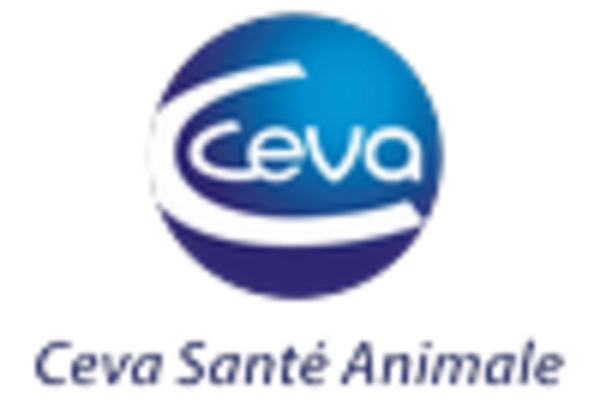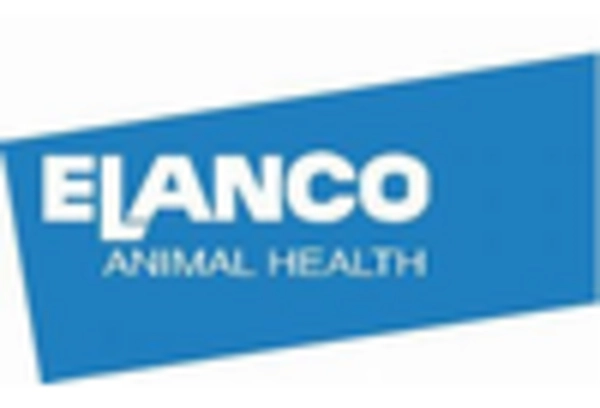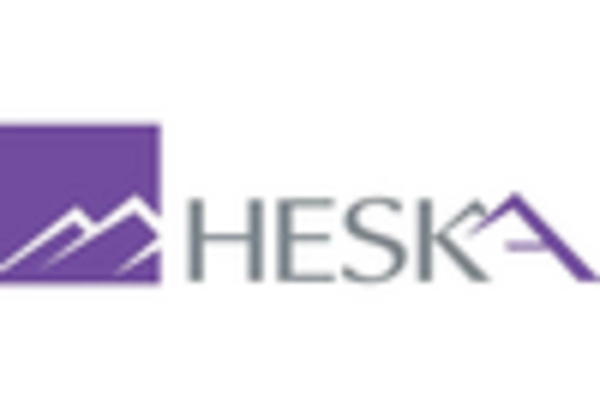Rising Poultry Production
The poultry vaccines market is benefiting from the rising production levels of poultry in the GCC. As the demand for poultry meat and eggs continues to grow, producers are increasing their output to meet consumer needs. This surge in production necessitates effective disease management strategies, including vaccination. Recent data indicates that poultry production in the GCC has grown by approximately 5% annually, leading to a corresponding increase in vaccine usage. Farmers are recognizing that vaccination is essential for maintaining flock health and optimizing production efficiency. Consequently, the poultry vaccines market is poised for growth as producers seek to enhance their biosecurity measures and ensure the health of their livestock.
Consumer Demand for Quality Assurance
Consumer demand for quality assurance in poultry products is significantly influencing the poultry vaccines market. In the GCC, consumers are increasingly concerned about food safety and the quality of meat and eggs they purchase. This concern prompts poultry producers to adopt stringent health measures, including vaccination, to ensure their products meet safety standards. As a result, the poultry vaccines market is likely to expand as producers seek to enhance their quality assurance protocols. Recent surveys indicate that over 70% of consumers in the region prefer poultry products from vaccinated flocks, highlighting the importance of vaccination in meeting market expectations. This trend suggests that the poultry vaccines market will continue to grow as producers align their practices with consumer preferences.
Increasing Awareness of Animal Health
The poultry vaccines market is experiencing growth due to the rising awareness of animal health among poultry farmers in the GCC. As consumers become more health-conscious, there is a heightened demand for safe and healthy poultry products. This awareness drives farmers to invest in vaccines to prevent diseases, ensuring the health of their flocks. The GCC region has seen a notable increase in vaccination rates, with some countries reporting vaccination coverage exceeding 80%. This trend indicates a shift towards proactive health management in poultry farming, which is likely to bolster the poultry vaccines market. Furthermore, educational initiatives by governments and agricultural organizations are enhancing knowledge about the benefits of vaccination, thereby promoting the adoption of vaccines in the poultry sector.
Government Initiatives for Biosecurity
Government initiatives aimed at enhancing biosecurity measures in the poultry sector are significantly impacting the poultry vaccines market. In the GCC, authorities are implementing stringent biosecurity protocols to prevent the outbreak of avian diseases. These measures often include mandatory vaccination programs, which are designed to protect both poultry and public health. For instance, countries in the region have allocated substantial budgets for vaccination campaigns, with some estimates suggesting investments of over $50 million annually. Such government support not only encourages farmers to vaccinate their flocks but also fosters a more resilient poultry industry. As biosecurity becomes a priority, the poultry vaccines market is likely to expand, driven by the need for effective disease prevention strategies.
Technological Innovations in Vaccine Development
Technological innovations in vaccine development are playing a crucial role in shaping the poultry vaccines market. Advances in biotechnology and genomics are leading to the creation of more effective and targeted vaccines. In the GCC, research institutions and private companies are collaborating to develop vaccines that provide better protection against prevalent poultry diseases. These innovations not only improve vaccine efficacy but also reduce the time and cost associated with vaccine production. As a result, the poultry vaccines market is likely to see an influx of new products that cater to the specific needs of poultry farmers in the region. The adoption of these advanced vaccines could enhance flock health and productivity, further driving market growth.
